10 facts about iOS 15 Private Relay • Apple iCloud Plus Privacy
Apple has released a new iOS 15, and the most interesting functionality is the definite release of the iCloud Plus Private Relay as the new privacy solution. What is Apple iCloud...
Filter by Category
Filter by Author
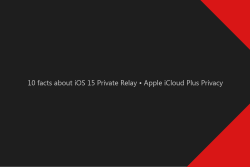
Apple has released a new iOS 15, and the most interesting functionality is the definite release of the iCloud Plus Private Relay as the new privacy solution. What is Apple iCloud...
Posted by Wojtek Andrzejczak
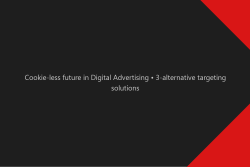
Digital advertising is heavily dependent on cookies, which are slowly passing away. Therefore, it is the right time to think about how cookie-less digital advertising can look in...
Posted by Wojtek Andrzejczak
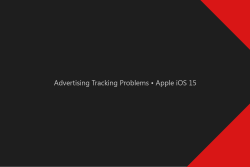
Every year we wait for the Apple WWDC conference to see how they will increase Privacy settings with the new iOS release. And this year, with iOS 15, they did their best to...
Posted by Wojtek Andrzejczak
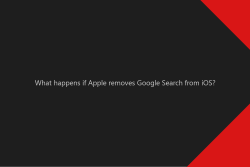
Apple is against other big corporations like Google and Facebook, but what would happen if Apple decides to remove Google Search from iOS? Why should Apple remove Google Search?...
Posted by Wojtek Andrzejczak
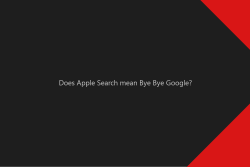
Apple wants to replace Google Search with its own Apple Search product. What consequences will it have for the advertising industry? iOS 14 introduces Apple Advertising A few...
Posted by Wojtek Andrzejczak
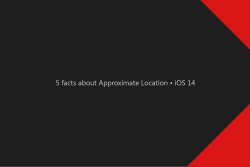
What will the iOS 14 Approximate Location change? When and how will native apps be able to use a precise location? New location screen With the new iOS 14 also comes a new...
Posted by Wojtek Andrzejczak

Apple deprecating IDFA on iOS 14 but also introduces the Apple Advertising option in the privacy settings. What could it mean? iOS 14 beta With the beta versions of the iOS 14, we...
Posted by Wojtek Andrzejczak

Learn more about the new tracking permission screen that Apple has introduced in the iOS 14. YT#1 – iOS 14 tracking permission screen Why has Apple decided to turn off IDFA?...
Posted by Wojtek Andrzejczak
Digital advertising is heavily dependent on cookies, which are slowly passing away. Therefore, it is the right time to think about how cookie-less digital advertising can look in the future.
Contents
Cookies and other persistent identifiers targeted the users directly and collected all their activities and their behaviors. Over the years, we have learned that everything is possible, and there is nothing that could stop us.

As a result, we have ended up with many aggressive and often not related ads located side by side, slowing down websites, making a poor website experience. In return, many users decided to install AdBlocking software to get rid of the problems.

Then others have joined the party, blocking the cookies, deprecating persistent identifiers, regulating privacy laws making advertising weeker and cookies has become less reliable, and they will become even less reliable in the future. (I’m not adding 3rd image below, because we know how the story ends).

On the other hand, the New York Times website removed all 3rd party services in the last years and reduced the number of displayed ads to the user. The main focus was to sell a premium inventory to deliver high-quality and relevant ads. As a result, they end up with better revenue than before—quality over quantity.
Yes, that is correct; they still work.
Supply & Demand.
Declining inventory/audiences and increasing buyer’s demand results in CPM prices getting higher. The more we need to pay, the fewer users we can reach.
This process is slow and takes time, weeks, months. So likely you will see no difference in your daily work. Each campaign is different, has different targeting, different creatives, different budgets different defined CPM.
Absolutely yes, you can remove specific user-related targeting options to let you target a wider audience. With less relevant/specific users inventory, you will have fewer bidders so that CPM will be lower, but also you will reach users not entirely related with your target group you would like to interact with.
At this point, you will start thinking about alternative possibilities of reaching the users, with a high matching probability to your campaign.
Cookies with device identifiers such as IDFA or GAID are recognized as persistent user identifiers, allowing advertisers to identify users on multiple devices over an extended period.
Over the years, extensive usage of persistent identifiers got eliminated or extremely limited from the technical and legal side, and it does not seem that this is the end of the regulatory changes.
That is why a fresh look at digital advertising and seeking a cookie-less solution is and will be a central topic for the next few long years.
It is known that users are engaging ads more frequently when related to their location, current weather conditions, or the article they are now reading. For example:
We have few leading cookie-less solutions that allow us to run digital campaigns without interaction with cookies or other persistent identifiers.
Location-based targeting allows us to target the users who are currently in the defined campaign areas and retarget users who have visited certain places in the past. Targeting users based on their location does not require knowing who the user is. Instead, it just registers GPS location points over the time coming from the native app or website. The correlation between location and users is robust and allows us to deliver ads to particular user segments.
In recent years more and more popularity gains weather targeting. It allows to turn on or off campaigns based on the weather conditions. We don’t need to know who the user is and what his story is. We don’t even need a precise location. Instead, we need to know if the user is currently more or less in a targeted campaign area to meet specific targeting conditions.
It is a new approach that uses machine learning/NLP/ai to analyze and match the content of the ads with the related page content without using any form of persistent identifiers. Ads are delivered only to content pages related to the message they want to communicate to the user. So the chance that the user will interact with ads related to the content of the article he is reading is relatively high.
This solution seems to be least limited to user opt-in permission and other environmental factors.
Market deversivication.
It is good to have projects built based on user privacy and deliver decent quality and campaign performance much better than classic digital campaigns.
Exactly.
Quality over quantity.
If you use Geo-Location targeting around school areas, you will reach students who are currently in the school or university at this specific moment.
The problem with the cookies is that we often target users who were students or were matched with some probability that they might be students. For example, some users were students a few months ago. But they are not students anymore.
We live in times where user privacy is getting a crucial topic, and as far I can tell, we’ll see even more restrictive regulations in the few incoming years. But, unfortunately, those changes will don’t have a positive effect on digital advertising, which has been build in times where everything was possible, and there were no limitations.
I believe that over the following years market will shift toward quality instead of quantity advertisement. However, it is also important to remember that branding and marketing are about the customer.
Companies that develop cookie-less solutions fill a gap on the market that can be worth a lot of money in the future. Now we perceive them as small projects with good ideas, but a few years from now, people might call them “early adopters.”
Subscribe to our newsletter!
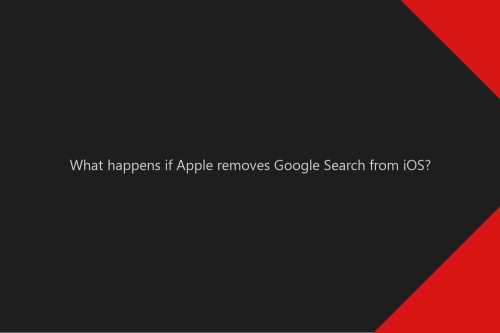
Apple is against other big corporations like Google and Facebook, but what would happen if Apple decides to remove Google Search from iOS? Why should Apple remove Google Search?...
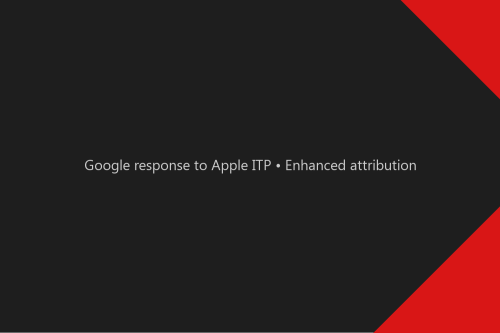
Google Enhanced attribution is an answer for Apple Intelligent Tracking Prevention (ITP). But how does it actually work?